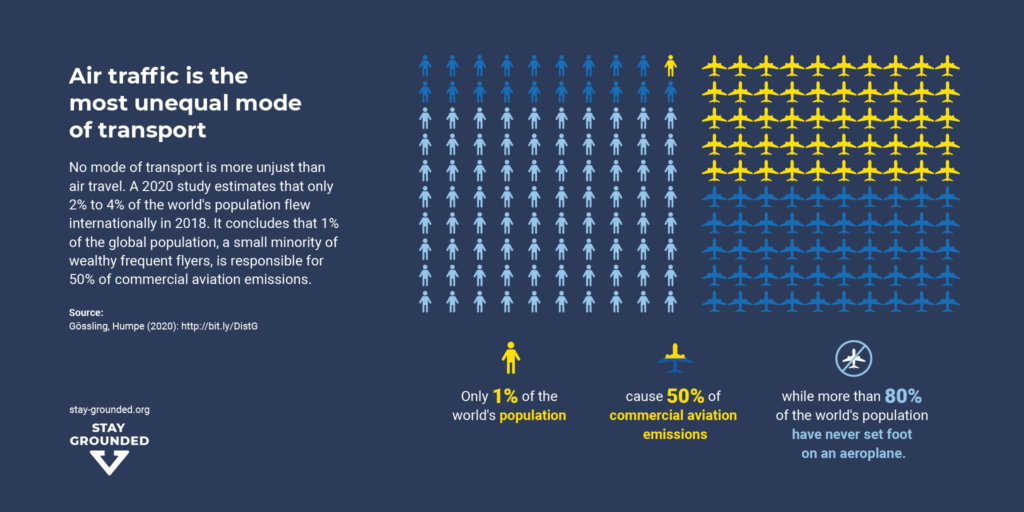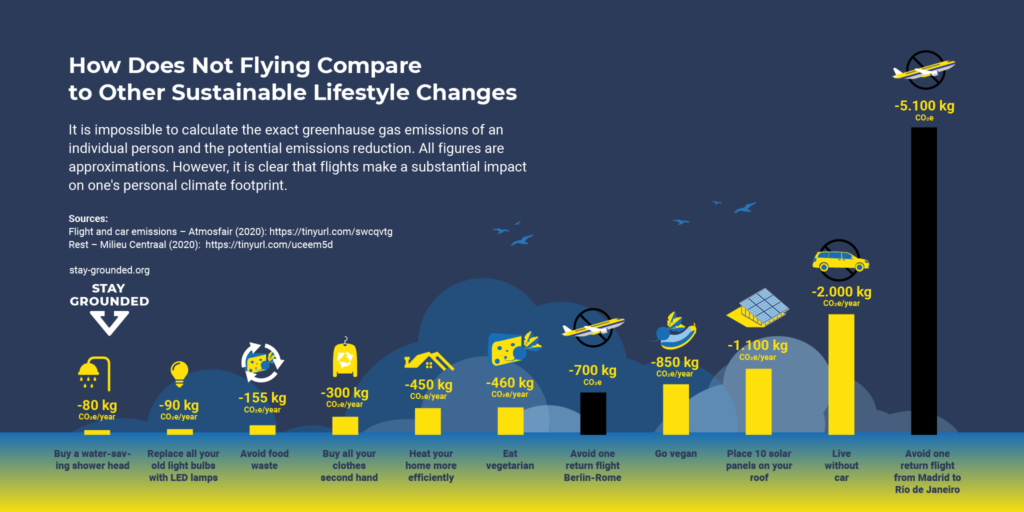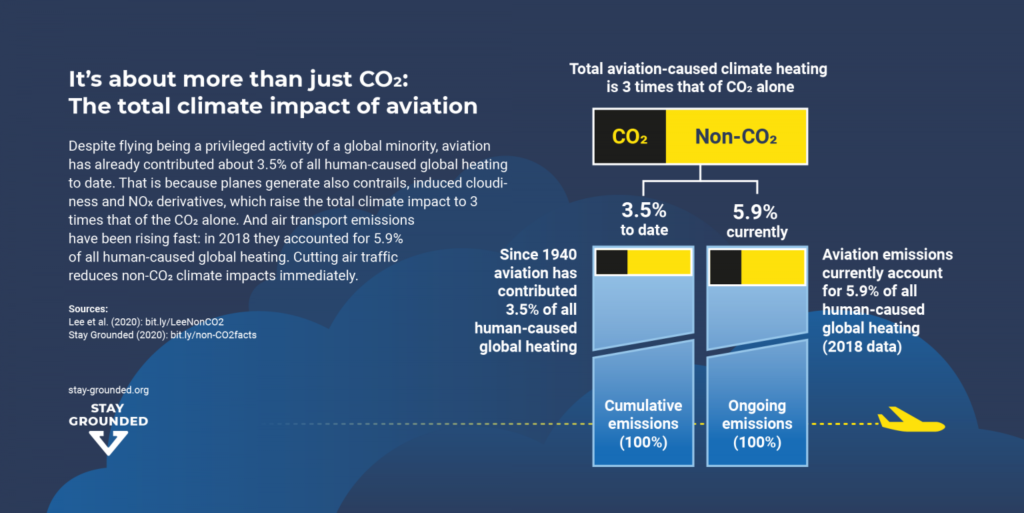From Airtravel to Fairtravel
Posted On
Why & How Individuals and Organisations, Should & Can Rethink Travel Choices for a Sustainable World.

“Heal the world
Make it a better place
For you and for me and the entire human race,
There are people dying
If you care enough for the living,
Make it a better place for you and for me”
Michael Jackson’s ‘Heal the World’ is a reminder for us that as humans we have the ability and opportunity to heal just as often as we cause socio-ecological wounds knowingly or unknowingly.Something to remember while reading this article and considering your organisational and/or individual approach to travel.
Our transport systems and socio-ecological injustice
Our transport systems play a major role in shaping the overall condition of the planet we inhabit : Coasts are being reclaimed to make way for coastal roads directly jeopardizing the lives of marine organisms and fisher folk. Other life supporting ecosystems such as mangroves are being choked to make space for airports and its accompanying infrastructure. Forests and farmlands are being destroyed for high-speed intercity travel. In the everyday world the comfort of smoke-emitting vehicles is prioritized over cyclists, pedestrians and other living beings, too. Vehicles and the infrastructure they necessitate, no matter where they are based, contribute to carbon pollution and impact the lives of the vulnerable, the most! How do we know who is vulnerable? Well, they are the people and living beings whose voices you’ll barely hear on the news and won’t hear directly on social media sites at all. These are the voices smothered by concerns over GDP and social status. Reflect on this a bit and you’ll know who we are talking about.

Transportation is therefore one of the many factors contributing to carbon pollution and the climate crisis it catalyzes. For instance, people and other beings have to battle floods, droughts and climate crisis induced calamities. There have also been reports of people losing lives due to health ailments propagated by pollution, too. You might be wondering what you can do about this. This article shares a humongously impactful but not yet widely popularised way to contribute to a sustainable and just world- by rethinking our priorities and our travel choices.
We are here to convey the need to minimize and as far as possible replace a seemingly clean and convenient, yet monstrous and deeply unjust mode of travel – air travel. To let you know that this vital yet seemingly impossible proposition is in fact a possibility, we’ll also share our experience of working towards this within our own organisation and with WIPRO Ltd. (IT company) .
Why reconsider air travel?
The airline industry cleans up its appearance pretty well but only after smothering life giving ecosystems and causing much carbon pollution. Beginning at the airplane and airport construction and continuing with fuel extraction and other processes, air travel is far from clean. Additionally, the seemingly ‘clean’ interiors of airplanes and airports, are breeding grounds for social inequity. They constantly endanger the health of both social and ecological systems. To support this here is some data compiled by our collaborating network to counter aviation, StayGrounded.
Air travel is accessible unequally across the globe :

This mode of travel that is accessible to only the privileged few is in fact one of the largest climate crisis perpetrators :

One of the many reasons the total climate impact of aviation is not recognised is because of a lack of focus on the non-carbon dioxide emissions by the sector :

You might wonder, ‘Why not transition to e-fuels and other existing alternatives?’ However, while climate mitigating alternatives like biodiesel and solar powered or electric aircrafts might seem promising, they are for the time being at least ‘deficient’. Solar PVs have a negligible impact, biodiesel availability is insufficient to meet the present let alone future demand (not to mention its own climate impacts) and the expected timeline for electric aircraft in regular commercial operations is not earlier than the end of the 2030s. For details of these critiques refer to the ‘Airline industry’s response’ section of this article. So if the choice of fuel or power source for air travel is not enough, what will get us closer to a sustainable travel?
Beginning to step away from air travel: The cBalance and Wipro experience
The first step to reducing air travel is to re-think about the criteria we use to evaluate it. You may think it is a more hygienic, fast and comfortable means of transport. You may also see its necessity for in-person business meetings. Why would we sacrifice such a convenient, comfortable and efficient mode of travel? This is where considering the sociological and ecological injustices and looking at the present day realities of our time, inclusive of the covid-19 pandemic and other natural and human-induced disasters, has changed the stakes. If sacrificing comfort is our concern, can we sacrifice the lives of our fellow humans and other non living beings just for comfort? If hygiene is our concern, can we ignore the dumping of toxic GHG gases in the air, impacting the health of the present and future generations of humans and other beings? If travel time is our concern, do we really need to travel that much? (Hasn’t the covid- 19 situation revealed that virtual meetings get much of the job done.) Or can we make the time spent travelling something that adds to our lives, something that we can be present to, if not look forward to?
Since 2015 we have been supporting Wipro Ltd. in studying their organisation’s flying patterns and suggesting ways to reduce carbon pollution from air travel. Wipro has managed a 15-20% reduction of climate impact from air travel, between 2015 and 2020. This reduction has been gradual and has involved them integrating the following suggestions in their organisations travel policies:
- Choosing non-stop flights over multi-stop flights, as far as possible.
- Choosing virtual meetings over in-person ones whenever possible.
- Choosing airlines having less carbon footprint (Best-in-class airlines)
- Choosing economy class over business class travel
- Transitioning to bus/train travel, as far as possible.

As is evident from these measures, Wipro attempts not only to reduce the impact of their flying but also to reduce flying itself. This is based on the knowledge that over a 1,000 km journey, an air traveler emits 285 kgs of CO2 kilometer while a railway passenger in even an AC executive-class compartment emits 30 kgs while in a comfortable AC bus the same passenger emits 70 kgs (Ref 1). Wipros policy includes that journeys in India that are less than 12 hours long need to be by train, unless employees are supposed to be back in the office on the next day. At cBalance we ourselves take this measure a step further. Everyone from the most-experienced to the youngest team member travels by rail for domestic travel irrespective of the number of hours of travel. However, this policy is not implemented without consideration. If someone is unwell or unable to sit for long hours or if there is an emergency and air travel is unavoidable we do consider it. Such a progressive policy may take some work to be implemented in organisations such that it is applied appropriately. It may require challenging conversations around what is a ‘need’ and what is a ‘want’. It may require challenging conversations around positions of power and economics. However, it is precisely because of the disproportionate impact and injustice that those with privilege have caused and continue to cause that this is the direction in which we must move and that the privileged must make the start. For example, it will be of little use if policies such as Wipro’s are not applicable to employees across all grades. Fortunately, Wipro is in the process of addressing such loopholes.
Similarly, while smaller organisations like ours have long chosen virtual meetings with overseas partners and other sustainable choices, events in recent years are necessitating that even larger companies reconsider their choice to fly. The Stay Grounded network presently comprises 160 members across the globe who are doing the same. And there are of course organisations beyond the network acting in the same direction to minimize socio-ecological injustices of the air travel industry. There are even some governments making efforts to minimize air travel too.
Moving into ‘Fair Travel’
‘An average medium-haul domestic return flight from Bangalore to Mumbai emits climate pollution (i.e. greenhouse gasses) that neutralizes the benefit of 100 trees – essentially, cut down forever. This can be seen as personally chopping down 1 tree at the end of the return flight, each time we fly’ (ref 2)
Since travel is a major component of IT and Finance/BPO service companies, the Fair Travel program is focused on working with pioneering IT and BPO/finance companies in India through a participatory method called ‘Carbon Reduction Action Groups’ (CRAGs). When successfully employed in global enterprises CRAGs will enable a mixed group of employees to set their own carbon footprint reduction targets, including climate impacts from business-related air travel. These groups will then be able to work toward co-creating their roadmap to achieve these reduction targets. As with Wipro, cBalance’s FairTravel program will provide the necessary training and support to achieve these. FairTravel will also provide carbon footprinting and other decision support, along with communications support for Corporate Sustainability teams to amplify these pioneering efforts. For more details on this program please visit this link.
For many of us, some of our fondest memories include travelling and some of our greatest achievements include working together to address challenges. Fair Travel is an opportunity to ensure that our collective journey is made up of responsible choices and that we continue to have fond travel memories and satisfying work. We need to begin now. Let’s heal the world and make it a better place for you and for me and the entire human (and non-human) race!
References:
- Based on independently verified India-specific emissions factors developed by cBalance and audited by Western State Colorado University (WSCU)
- http://cbalance.in/wp-content/uploads/2017/05/CB_Wipro_AviationEF_CaseStudy_v5.pdf
Editors: Neesha Noronha, Namratha Sastry, Vivek Gilani